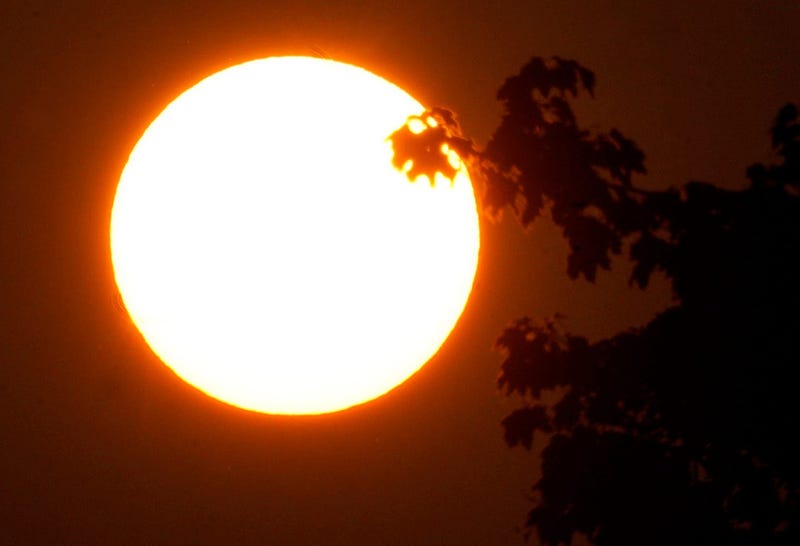
DETROIT (WWJ) - It's like drawing an UNO Reverse Card in a never-ending game for Michiganders as wildfire smoke that blanketed the area for the last two days continues, thanks to shifting winds.
The haze and unhealthy air is trigging Air Quality Alerts once again in Metro Detroit as wind flips back to the south and brings all the smoke that drifted through the area over the last 24 hours back through.
A statewide Air Quality Action Advisory in Michigan has now been extended through Friday, June 30.
According to the Michigan Department of Environment, Great Lakes and Energy, pollutants are expected to remain in the 'Unhealthy' to -- in some hourly concentrations -- the 'Very Unhealthy' range. While Thursday showed improvement over Wednesday's air quality index (AQI) that spent time at the "Hazardous" level, Detroit's air once again ranked among the worst in the world on Thursday.
The Detroit area held second place behind Chicago, by IQAir’s air quality index, and registered an AQI as 152 on a 500 scale.
As of 8:30 a.m. Thursday, Detroit dropped to fourth worst in the world at 132 AQI, but still registered a PM2.5 concentration at 9.6 times over the World Health Organization's annual air quality guideline value.
At those levels, state health officials recommended sensitive groups, such as people with lung disease (including asthma), heart disease, and children and older adults, limit prolonged or heavy exertion.
The EGLE also advised all residents reduce or eliminate activities that contribute to air pollution, such as outdoor burning, and use of residential wood burning devices. Michiganders can also reduce vehicle trips and vehicle idling as much as possible.
"Keep windows closed overnight to prevent smoke from getting indoors and, if possible, run central air conditioning with MERV-13 or higher rated filters," authorities added.
According to Dr. Devang Doshi -- an allergist with Corewell Health in Royal Oak -- smoke particles can cause damage to the respiratory and vascular systems, and can irritate the eyes, nose and throat along with other illness symptoms.
"The main one that we worry about obviously is the breathing where people go outside and they're a little more winded, short of breath or they're coughing or they're experiencing this chest tightness, pressure sensation in the chest," Doshi said. "Those are really symptoms that you have to be cautious with because if you're experiencing any sort of respiratory issue where you're having a hard time breathing, coughing or having any chest symptoms, you immediately want to go inside."
The Michigan Department of Health and Human Services (MDHHS) has set up a hotline for Michigan residents to ask health-related questions related to air quality issues. The number is 800-648-6942, and is available Monday through Friday, 8 a.m. to 5 p.m., excluding holidays.
The smoke is expected to finally move out of the area by Friday and air quality is expected to improve in time for the holiday weekend.
But AccuWeather Meteorologist Brian Thompson warned that Michiganders shouldn't expect this to be the last time we deal with poor air quality due to Canada's raging wildfires.
"It looks like we’ll be dealing with the Canadian fires all summer. It’s something we’re just gonna have to be mindful of through the rest of the summer,” Thompson said.


